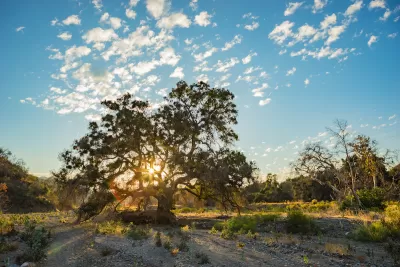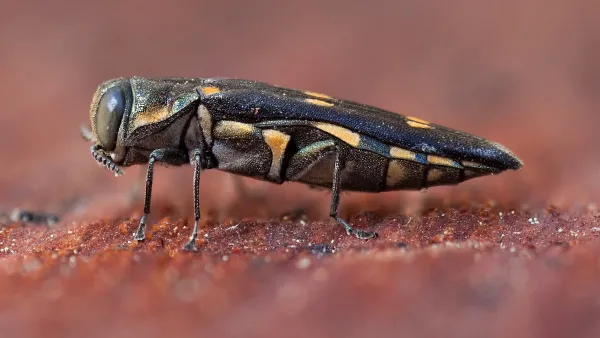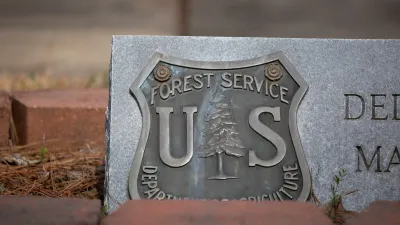Goldspotted oak borers (GSOB) are invasive pests that are harming and killing oak trees across San Diego, Riverside, Orange, and Los Angeles counties.

The goldspotted oak borer (GSOB) is a devastating beetle currently spreading through Southern California's oak trees, causing widespread destruction. As reported in this article by Lila Seidman, the beetle's presence has been confirmed in parts of Los Angeles County, including East Canyon, Rice Canyon, Whitney Canyon, and recently in Silverado Canyon. Ron Durbin, forestry division chief for the Los Angeles County Fire Department, compares the beetle's spread to stage-four cancer, highlighting its rapid and deadly impact since its discovery in San Diego County in 2008, where it has killed more than 80,000 trees. The beetle targets oaks, particularly the coast live oak, canyon live oak, and California black oak, severely disrupting the ecosystem and increasing fire hazards due to dead, dry trees.
The L.A. County Board of Supervisors is taking action to combat this threat by exploring a state of emergency declaration and seeking additional resources to address the infestation. The primary concern is the potential spread to the oak-rich Santa Monica Mountains, which are home to around 600,000 oak trees. The trees' demise would result in the loss of shade, wildlife habitat, and significant fire hazards. Eradication of the beetle is not possible, but efforts focus on slowing its spread, such as regulating firewood movement, treating trees with systemic pesticides, and exploring alternative methods like limewash and prescribed burns.
Volunteers and organizations, such as Earthroots Field School, are actively involved in mitigating the beetle's impact. Researchers are investigating management techniques, including indigenous cultural burning practices and heat-treating firewood to prevent further infestations. These efforts aim to buy time and develop better treatment methods, emphasizing the urgent need for proactive measures to protect California's oak forests from current and future invasive pests exacerbated by climate change. The fight against the GSOB underscores the broader importance of effective and coordinated responses to invasive species threatening ecosystems statewide.
FULL STORY: Tree-killing beetle is on a death march through Southern California’s oaks. Can it be stopped?

Planetizen Federal Action Tracker
A weekly monitor of how Trump’s orders and actions are impacting planners and planning in America.

San Francisco's School District Spent $105M To Build Affordable Housing for Teachers — And That's Just the Beginning
SFUSD joins a growing list of school districts using their land holdings to address housing affordability challenges faced by their own employees.

The Tiny, Adorable $7,000 Car Turning Japan Onto EVs
The single seat Mibot charges from a regular plug as quickly as an iPad, and is about half the price of an average EV.

Seattle's Plan for Adopting Driverless Cars
Equity, safety, accessibility and affordability are front of mind as the city prepares for robotaxis and other autonomous vehicles.

As Trump Phases Out FEMA, Is It Time to Flee the Floodplains?
With less federal funding available for disaster relief efforts, the need to relocate at-risk communities is more urgent than ever.

With Protected Lanes, 460% More People Commute by Bike
For those needing more ammo, more data proving what we already knew is here.
Urban Design for Planners 1: Software Tools
This six-course series explores essential urban design concepts using open source software and equips planners with the tools they need to participate fully in the urban design process.
Planning for Universal Design
Learn the tools for implementing Universal Design in planning regulations.
Smith Gee Studio
City of Charlotte
City of Camden Redevelopment Agency
City of Astoria
Transportation Research & Education Center (TREC) at Portland State University
US High Speed Rail Association
City of Camden Redevelopment Agency
Municipality of Princeton (NJ)





























